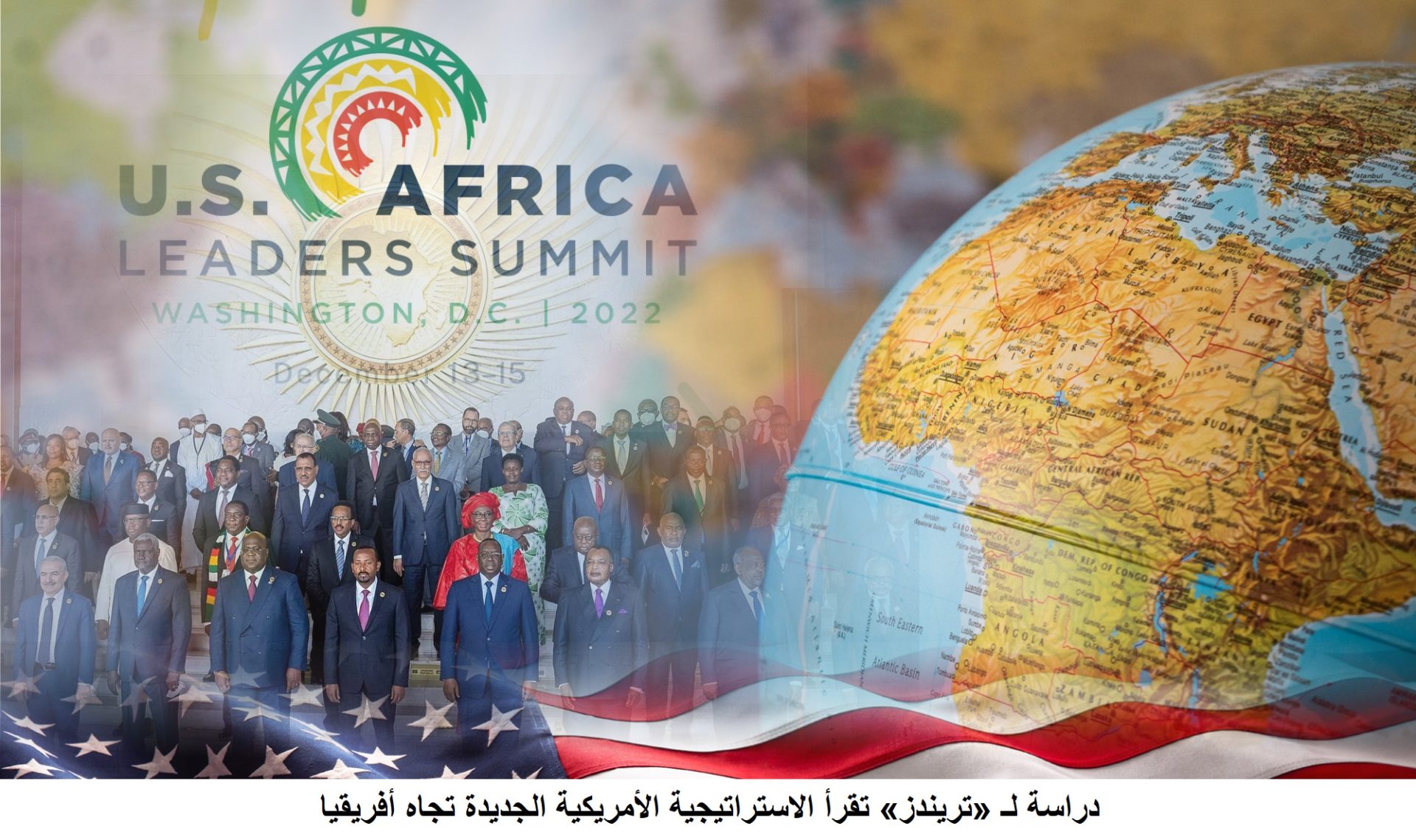Abu Dhabi، UAE
In conjunction with The U.S.-Africa Summit, which is currently held in Washington, D.C., the Trends Center for Research and Advisory has issued a new study entitled “The U.S.-Africa Summit in Light of the New American Strategy,” which sheds light on the real reasons for this summit, analyzes the aims of that strategy, and the mechanisms for its implementation, and the most important challenges that Americans are expected to face to implement that strategy.
The study – prepared by Noura AlHabsi, Senior Researcher, Head of the Scientific Publishing Department, and Khaled Fayyad, Lead Researcher at the Strategic Studies Department – says that US President Joe Biden’s administration sees this summit as one of the most important priorities of US foreign policy in the coming months. Showing that Washington considers the summit as the first opportunity for his administration to indicate how it sees the future of U.S.-African relations on its land amid the increasing geopolitical tension with Russia and China and the efforts to recover the U.S.-African relations after the tension it witnessed during the era of President Trump, but rather sees it as the real test of the new American strategy in Africa after its announcement last August.
The study, which was a part of the research programs in foreign policy and international relations, referred to the role of Africa in the international arena, as it is considered one of the continents most affected – compared to other continents – by the changes in the various international systems.
The study indicated that Africa today has turned into a major global theatre, as the active powers – whether regional or international – are trying to gain a role for themselves through it, revealing the reasons for the need for a new American transaction with the African continent, as the demographic, economic, and political importance of the African continent has grown, the security concerns, the rising Chinese influence, the Russian strength, and the new regional interferences have grown, too.
The study cleared that, based on these reasons, which reflect that many greedy parties are willing to play a key role, the United States issued a new strategy towards Africa, through which it tried to develop a set of visions and ideas, so the United States can face the developments in the African continent, which will make the African continent benefit from playing that role in a more effective manner. This strategy has set itself four goals: promoting just and open societies, empowering democratic efforts and addressing security challenges, supporting a strong recovery from the Covid-19 pandemic, and promoting climate adaptation and green energy transformation.
The study mentioned that the US strategy towards Africa set six approaches to implement these goals, namely: increasing US diplomatic engagement in the region, supporting sustainable development and economic resilience, reviewing ways of dealing with African armies, strengthening commerce relations with African countries, leading the digital transformation process, and supporting urban renewing efforts in the region.
The study identified four challenges facing the new US strategy in the African continent: The African opposition, support for democracy, the Russian challenge, and the Chinese challenge.
The study concluded by addressing the future of the American role in Africa and noting that in the light of this strategy and those challenges, it is possible to say that the American role success in the future depends on dealing with these challenges, stressing that the security challenge, represented by the terrorist groups spread and taking over many ungoverned regions in Africa, represents the greatest danger to the success of the U.S.-Africa Summit and strengthening of the implementation of the new American strategy in Africa, which really needs a long-term integrated strategy to deal with the African continent as a partner, and liberates it from the old patriarchal relation.


